Ohio Doctor Shares Life as Soldier in Iraq - 1 & 2


This is a series of articles written by Col. Stephen Ulrich of the Ohio National Guard, now serving in Iraq. They are lenghty, but interesting. They are written like letters home and most enjoyable to read. They give you an insight into the lives our troops lead. They were originally published in centralohio.com and reprinted in Defend America.
*********************************
DOCTOR ADAPTS TO LIFE IN IRAQ (Part One)
Today a strong, dust-filled wind blew out of the south. It kicked up a loose pop can and rattled it down the gravel street that serves as home to the Headquarters of the 2nd of the 137th General Support Aviation Battalion.
I picked up the can and safely disposed of it, thinking how far from home I am once again.
It is two days past Christmas. Many of the e-mails and cards from patients have asked me if I am going to write again during this deployment. I have not to date because I have been too busy adapting to a new situation with different duties than my last rotation.
I had originally planned on being deployed in February 2007 to Camp Liberty, which is near Camp Victory, where I served two years ago.
However, fate had other plans. The GSAB needed a flight surgeon to fill a 90-day rotation and my name came up next on the list at National Guard Bureau.
Flight surgeons are military physicians who receive special training in aviation medicine, aviation systems and safety issues. Their role is to make sure that pilots are medically qualified to fly safely, to educate pilots on health issues that may present safety issues, and to advise the commander of the aviation unit on health issues and human factors that may present increased risks of accidents.
I used to fly my own helicopter to the hospital and even on occasion made a house call or two. It was the love of flying that initially attracted me to the National Guard.
I became a flight surgeon in 1988 and served in that capacity for many years with the Ohio Army National Guard. Then I moved on to command and staff responsibilities and finally have served as the State Surgeon of Ohio for the last five years.
Sylvia got me lined up with housing. I have a "wet trailer," which means a bathroom and shower, which I share with another physician whose room is on the other end of the trailer. No more early morning walks in the cold air.
Life is good.
Maj. Joe Kelly is the aero medical physician assistant for the GSAB. He is a full-time National Guardsman and a physician assistant with special training in aviation medicine. He was the one who had e-mailed me on several occasions and informed me of the fact that I would have oversight on over 60 percent of the helicopter medivac missions in Iraq. He gave me a tour of the clinic and filled me in on the medical issues that I would be working with.
He introduced me to the executive officer, Maj. Monteith, who gave me a radio so that we could keep in touch. He also showed me where the various offices on Blackjack Alley were and made me feel really welcomed.

I then met Lt. Col. Chris Petty, commander of the unit. I shared with him my anxieties about coming in new to a strange unit. He assured me that I would do fine. He reviewed the overall structure of the unit and what he expected from his flight surgeon.
At the end of our discussion he gave me a GSAB unit patch to wear on my flight suit. Aviation units often have a distinctive patch that members wear.

The patch always tells a story.
The patch provides a unit identity, which helps to form a team from the many different components of the battalion. The picture of the patch is worth a thousand of my words. This unit's patch features a crossed swords and a skull on a black background with the unit's designation as the Second Battalion of the 135th Aviation Brigade.
It is made up with units from six states that are listed on the upper edge of the patch. The states include Arkansas, Florida, Colorado, Nebraska, Minnesota and Utah.
The patch was actually based on the emblem that a privateer by the name of Jack Rackham used when he sailed from the outer banks of North Carolina. He was an equal opportunity sort of pirate and had two female pirates as a part of his crew.
Blackjack's name just seemed to fit the picture. So the modern day Blackjacks, both men and women, fly their ships on the line in service of their country under a Blackjack patch.
As I walk down Blackjack Alley with company flags and various state flags blowing in the wind I know that I am a part of a strong history of citizen soldiers who come together to protect our country, to promote freedom and carry out the direction and will of the American people.
My role over the next few months is to learn how this unit works, make sure its members maintain health, that our medics are trained and resourced to provide the best possible care to our soldiers in battle and in garrison.
As I learn the different functions and units that make up the General Support Aviation Battalion, I will keep the readers posted with my discoveries and insights into this historical deployment of an all National Guard GSAB which is successfully meeting its mission in Iraq.
I miss Perry County and Zanesville, I miss my patients and I miss my colleagues and family, but it is good to be back with my fellow soldiers who have made me feel so welcome in their community.
Read the entire entry here.
**********************
DOCTOR IN IRAQ: A LESSON IN PERSONNEL (Part Two)
IRAQ -It is a wet, gray, muddy day on Blackjack alley. The seasonal rain has begun in earnest, and a damp cold permeates the air we breathe. For a place that gets to 120 degrees in the summer, it is strange to see one's breath hang in the air.

Perhaps if time allows one week I will do just an article on the T-barrier murals that are prevalent here. It is an art form similar in style to the nose art the World War II aviators painted on their aircraft.
Finally there is the flight surgeon. That would be me. We all think that we are important, but truly I am humbled by what a small part I play in a large complex entity. I am still learning a lot about this unit and what it does. I do make my contribution but it is as part of the team not the star player.
I have mentioned a number of names of officer leaders but the mission would not be possible without the dedication of the enlisted soldiers who make the headquarters company function so successfully. They are a group of dedicated American citizens who have given up jobs, family and the comfort of home to serve their fellow soldiers, their commander and the American people. They are the true stars.

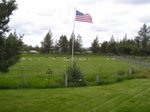


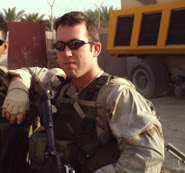










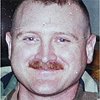


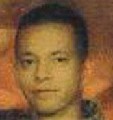









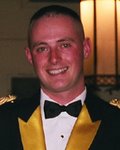






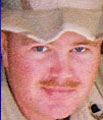
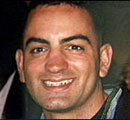




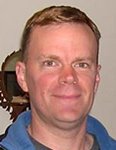
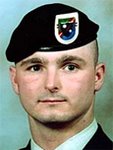




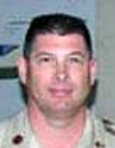
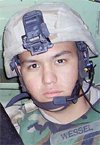
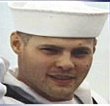
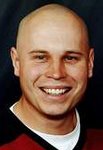
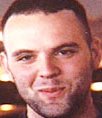
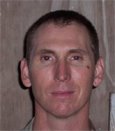

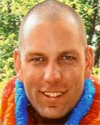
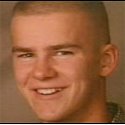
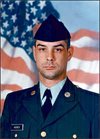


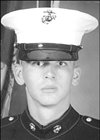
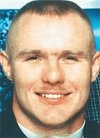
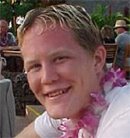

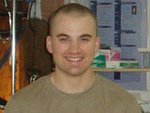

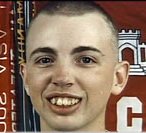


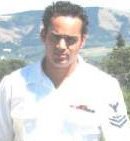

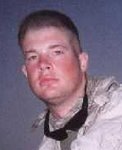
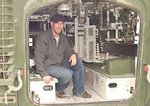
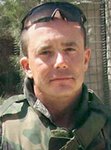

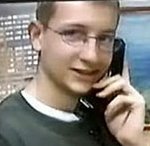

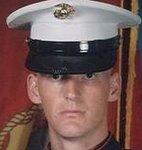
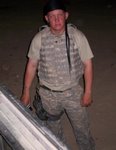
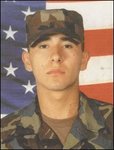
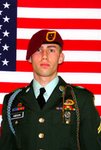

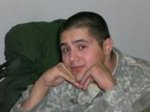
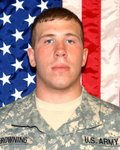





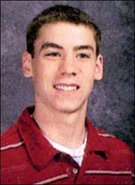
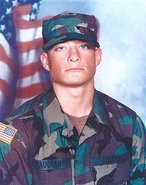
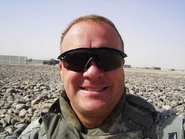
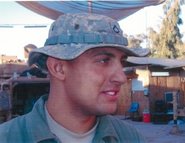
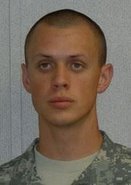
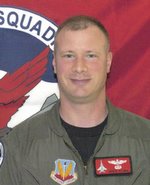
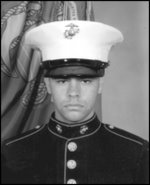
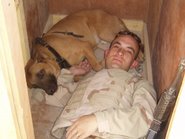
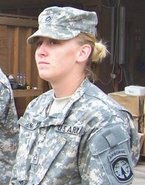
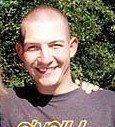
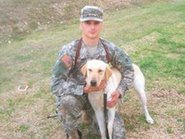

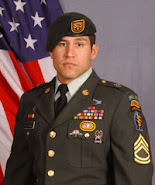

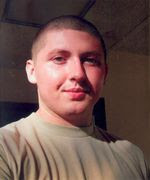



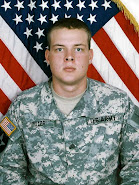
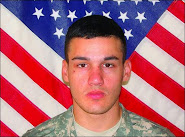



1 comment:
I come here for my Inspiration each day, the drive by media tries to keep me depressed, can’t let that happen. The country is full of great Americans.
Post a Comment